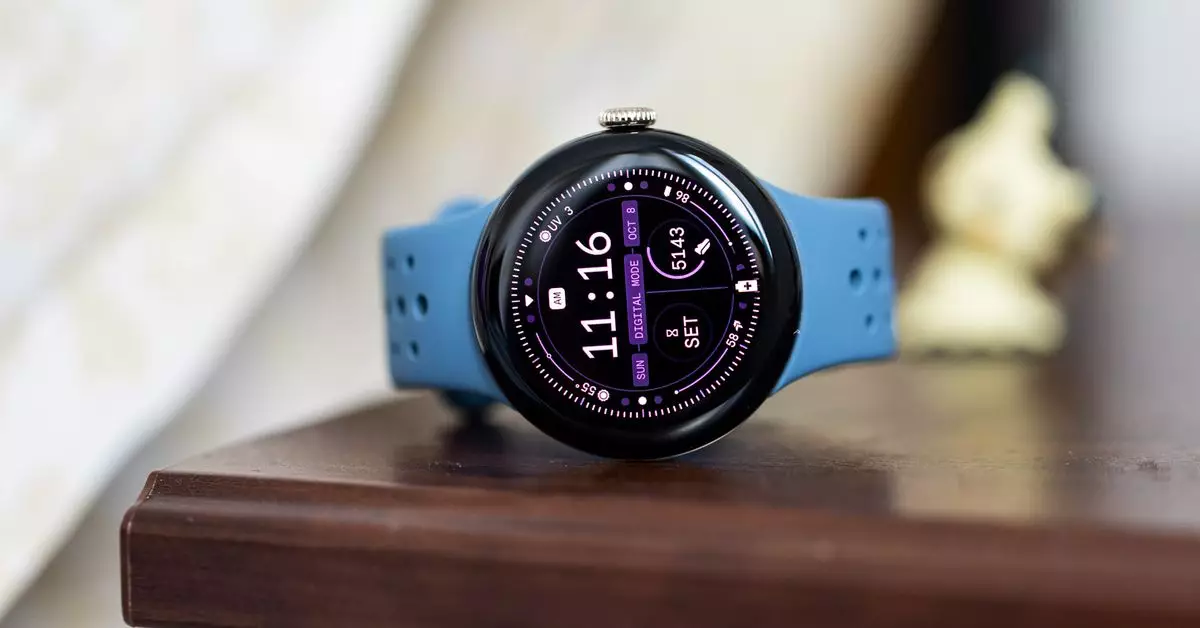In the ever-evolving landscape of wearable technology, finding a device that marries functionality with style can be challenging. Google’s Pixel Watch series, specifically the new Pixel Watch 3, presents an intriguing option for tech-savvy consumers and fitness enthusiasts alike. While the latest iteration boasts impressive upgrades, the previous generation, Pixel Watch 2, remains a notable contender, especially during promotional sales. This article will dissect the key features, advances, and cost-effectiveness of both models.
The Pixel Watch 3 marks a significant evolution in Google’s wearable lineup. Among its enhancements is a more expansive and illuminated display, alongside an updated 44mm size that accommodates a broader audience. Integration of artificial intelligence into workout recommendations forms another groundbreaking feature—providing users with tailored fitness insights based on their prior activities. The ability to access Google Maps offline represents a practical upgrade, ideal for users who find themselves away from reliable mobile connectivity.
Despite these improvements, enthusiasts should consider whether they translate into a justified price tag starting at $350. The leap in functionality may seem appealing, but buyers need to weigh these benefits against their personal usage and needs from a smartwatch.
The Pixel Watch 2, while overshadowed by its successor, is a cost-effective alternative priced at approximately $224—providing substantial savings without compromising on the essentials. Sporting a streamlined 41mm design, the differences in display area compared to the Pixel Watch 3 are minimal at about 10%. Both models utilize Qualcomm’s Snapdragon Wear W5 Gen 1 processor, ensuring comparable performance.
Users seeking core smartwatch capabilities might find the Pixel Watch 2’s features adequate. It offers a range of health tracking functionalities alongside compatibility with Wear OS 5, which enhances its overall usability. For those who prioritize smartwatch aesthetics and essential health features over the newest technological advancements, the Pixel Watch 2 remains a viable and aesthetically pleasing option.
When it comes to performance, the Pixel Watch 2 does not lag behind its successor. Both models feature similar battery life, averaging approximately 24 hours per charge—sufficient for daily wear and fitness activities. Whether the always-on display is activated or not, this duration is commendable, making daily recharging a minor concern. Nevertheless, potential buyers should keep in mind that the older model misses some of the newer fitness features available exclusively to the Pixel Watch 3, such as improved screen brightness.
Furthermore, the lack of an ultra-wideband chip in the Pixel Watch 2 limits certain functionalities—such as unlocking select Pixel devices and compatible BMW vehicles—though this may not be a priority for many users. Ultimately, if cutting-edge tech isn’t integral to your experience, the Pixel Watch 2 can still deliver an impressive performance.
While Google’s offerings are enticing, it’s essential to consider alternatives in the market. Recently discounted models, like the updated Amazon Fire HD 8 tablet, showcase how current technology keeps consumers engaged with value-added purchases. The tablet now includes upgraded RAM, an enhanced camera system, and AI-powered features—all while being available at a significant discount.
Additionally, devices like the Airmega AP-1512HH Mighty air purifier demonstrate the diversity of tech solutions available today. Compact yet powerful, this purifier illustrates how innovations in home technology can complement the wearable sector by improving overall well-being.
In wrapping up this analysis, it is evident that consumers have an array of options at their disposal, particularly when considering Google’s Pixel Watch series. While the Pixel Watch 3 introduces exciting improvements, the previous generation remains an attractive alternative that does not sacrifice core functionalities. Ultimately, your decision should be informed by personal needs, the specific features that matter most to you, and the price point you are comfortable with. As we navigate a world ripe with technological advancements, thorough research can yield a winning purchase, be it a state-of-the-art smartwatch or an essential home gadget.


Leave a Reply